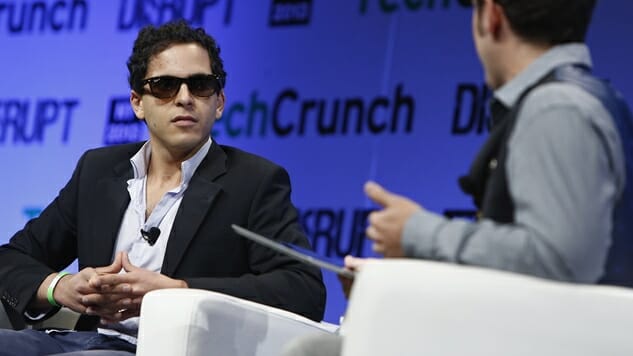An Interview with Mahbod Moghadam, the Co-Founder of Everipedia and Rap Genius
Photo by Brian Ach/Getty
Mahbod Moghadam is an entrepreneur and angel investor, whose current project is Everipedia, a direct competitor to Wikipedia. “Thug Wikipedia” as it’s known to insiders in the company, was co-founded by Moghadam and Sam Kazemian, who met at UCLA in 2015. Moghadam is most widely well-known for co-Founding Rap Genius, and per his Everipedia page:
Moghadam resigned from Genius in 2014 after receiving negative media attention for writing annotations on maniacal shooter Elliot Rodger’s manifesto on his own website.
I exchanged a series of e-mails with Moghadam about his thoughts on the industry, and our most extensive back and forth focused on the dangers of groupthink on the internet. We tend to remember what people get wrong more than what they get right, but I think that’s mainly because there is more to choose from as to what we get right, and that model lends itself well to digital infrastructures. But, I think that the central flaw exposed in the ever-expanding web of social media is that the internet makes for an easy place to dog pile, and simply relying on human nature is bound to lead people in the wrong direction at some point.
For example, during the Boston Bombing, a well-intentioned Reddit thread pieced together information, and wrongly accused two innocent kids of being the bombers, and they wound up on the cover of the New York Post.
This interview had been edited for clarity and length
Now that there are a litany of fake news sites, the danger of groupthink leading to upvoting something very wrong is even bigger. How do you plan to combat the influence of fake news on Everipedia?
The site is a wiki, so there’s bound to be mistakes. But the point of a wiki is that it’s an ongoing discussion-you can see the upvotes, downvotes, and comments very easily, unlike on Wikipedia where there is a “talk” section that hardly anyone even knows how to use.
Reddit is a group-brain site too. I gotta admit, I don’t use Reddit. But, even though the Boston Bombing example that you bring up makes Reddit look very bad, I imagine that Reddit is a force to combat fake news through discussion. The big difference is that Reddit’s discussions-not unlike Facebook’s-are haphazard and chaotic. [We plan for] Everipedia to have the most sophisticated groupthink software of all time, modeled off sites like Quora, Stackoverflow, and Genius.
Everipedia is going to be the answer to fake news. All we’ve got right now Snopes.com, which is run by husband and wife Barbara and David P. Mikkelson. There are all these floater sites trying to do what Everipedia is going to do. Now imagine when we have a huge community, who will do a better job of monitoring fake news? Snopes or us?
Also, I want to say one more thing in defense of Reddit, even though I think it’s outdated and I don’t use it; you bring up an example where Reddit gave a bad result, but how often is Reddit the source of true, meaningful, and valuable news? Sometimes I feel like all of news media is based on Reddit now; or for that matter, Wikipedia. For all of its goofs, Wikipedia is legit. It is the go-to source for information. Everipedia is going to make all information as legit as Wikipedia-except the format and presentation will be way more advanced than Wikipedia. We will cast a wider net, but also give better results.
Also, everything on Everipedia has to be cited from an internet source. You can’t cite a source that is not immediately verifiable. We are putting the footnotes front-and-center, so to speak. We have zero anonymous info. You know from whom all the information on the site is coming from, including “Verified Accounts” for celebrities, academics, and journalists. Plus, everyone has an IQ score.
-

-

-

-

-

-

-

-

-

-

-

-

-

-

-

-

-

-

-

-

-

-

-

-

-

-

-

-

-

-

-

-

-

-

-

-

-

-

-

-








































